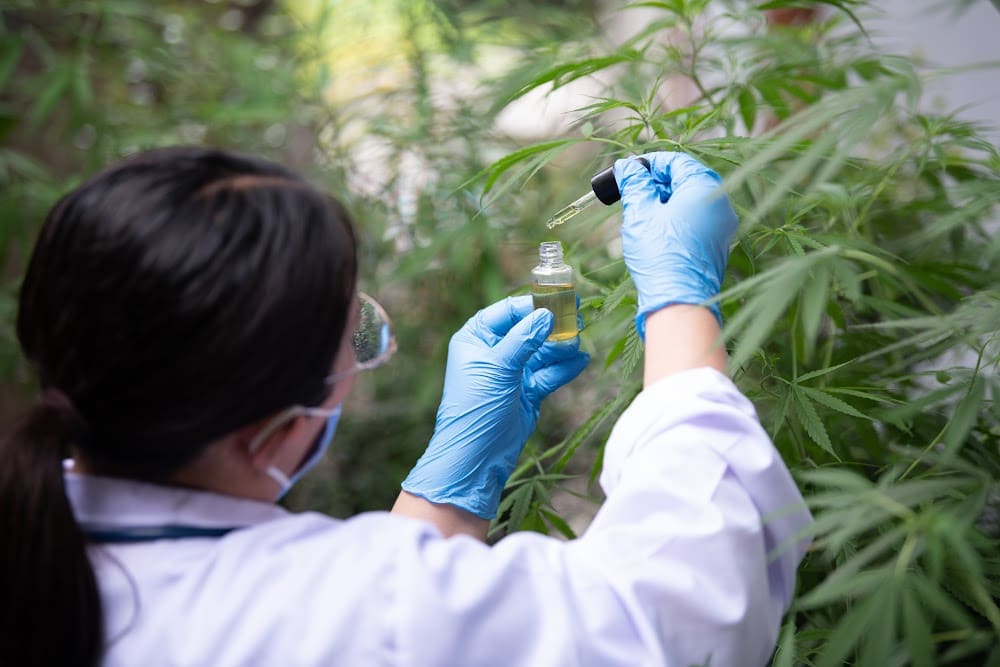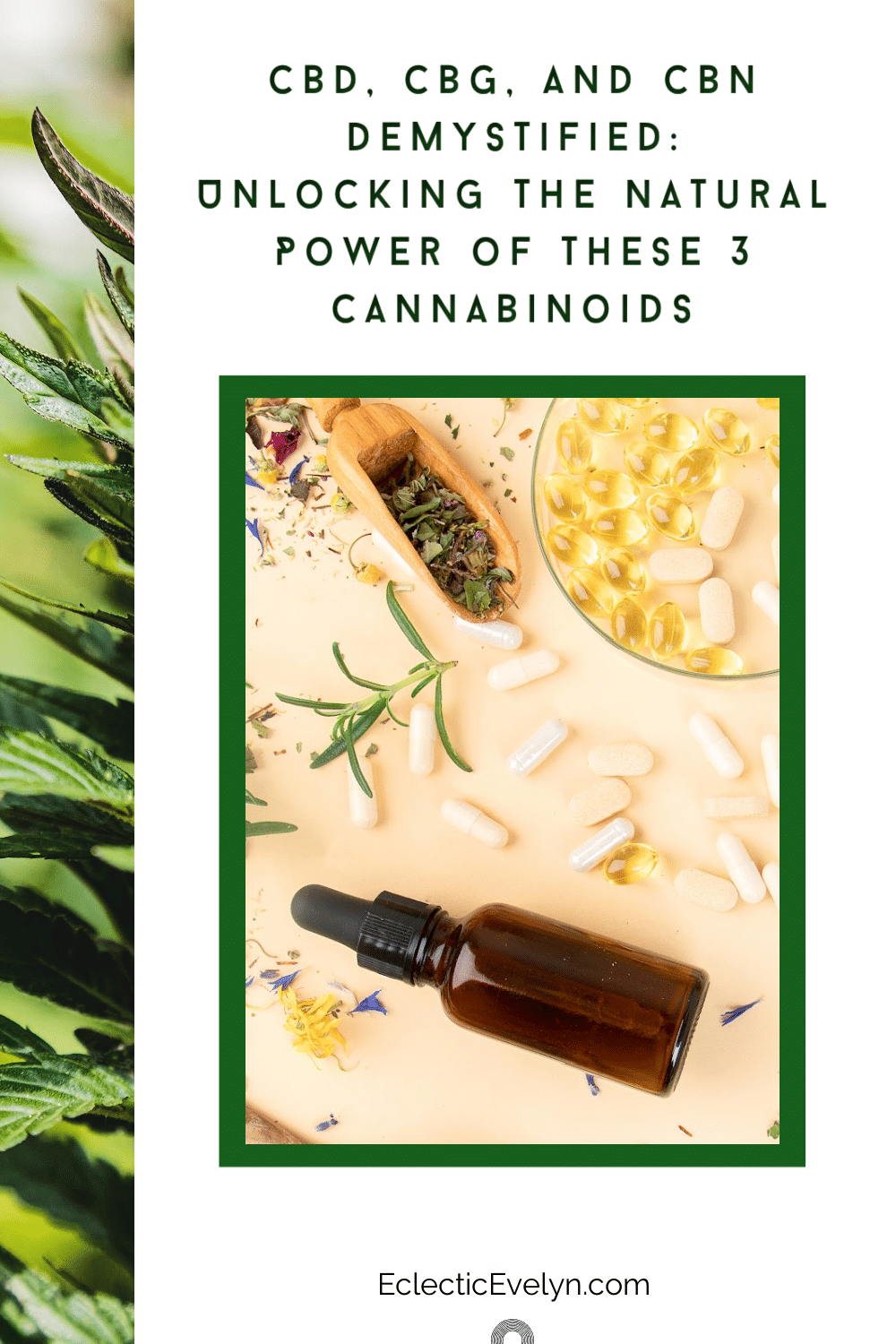The world of natural wellness has seen a surge of interest in recent years, and cannabinoids have become a cornerstone of this movement. These compounds, found in the cannabis plant, have been credited with a range of health benefits, from easing chronic pain to improving sleep. However, the sheer number of cannabinoids can be overwhelming. Among the many, three have garnered particular attention: CBD, CBG, and CBN. This blog post aims to demystify these cannabinoids, explaining what they are, how they differ, and the health benefits they offer.
What is a Cannabinoid?
Cannabinoids are a class of chemical compounds that interact with the endocannabinoid system (ECS) in the human body. The ECS is a complex cell-signaling system that plays a crucial role in regulating a variety of physiological and cognitive processes, including mood, pain sensation, appetite, and memory. Cannabinoids can be either endocannabinoids (produced naturally by the body) or phytocannabinoids (found in cannabis plants).
Phytocannabinoids are the ones most people are familiar with. The two most well-known are tetrahydrocannabinol (THC) and cannabidiol (CBD). While THC is famous for its psychoactive effects, cannabinoids like CBD, CBG, and CBN do not produce a “high” and are valued for their therapeutic potential.

What is CBN, CBG, and CBD? What are the Differences?
Cannabidiol (CBD)
CBD is perhaps the most well-known and widely used cannabinoid. It is non-psychoactive, meaning it doesn’t produce the “high” associated with THC. CBD is extracted from hemp or cannabis plants and is available in various forms, including oils, tinctures, edibles, and topicals.
CBD interacts with the ECS by indirectly influencing the CB1 and CB2 receptors. It doesn’t bind directly to these receptors but modulates their activity, leading to various therapeutic effects such as reduced anxiety, pain relief, and anti-inflammatory properties.
Cannabigerol (CBG)
CBG is often referred to as the “mother of all cannabinoids” because it is the precursor to other cannabinoids, including CBD and THC. In the cannabis plant, CBGA (the acidic form of CBG) is converted into CBG, CBD, THC, and other cannabinoids as the plant matures.
Like CBD, CBG is non-psychoactive. It binds directly to the CB1 and CB2 receptors in the ECS, potentially offering therapeutic effects. CBG is less abundant in cannabis plants compared to CBD and THC, making it more challenging to extract and produce in large quantities. However, its unique properties, such as antibacterial and neuroprotective effects, make it a cannabinoid worth exploring.
Cannabinol (CBN)
CBN is a mildly psychoactive cannabinoid that is formed as THC ages and oxidizes. This process occurs naturally over time or can be accelerated by exposing THC to heat and light. As a result, older cannabis plants tend to have higher levels of CBN.
CBN binds to the CB1 and CB2 receptors but with less affinity than THC, leading to a mild psychoactive effect that is much less intense than THC. CBN is often associated with sedative effects, making it a potential aid for sleep disorders.

What Health Benefits Do Cannabinoids Offer?
The health benefits of cannabinoids are vast and varied, with ongoing research uncovering new potential uses. Here are some of the key benefits associated with CBD, CBG, and CBN:
Pain Relief
One of the most well-documented benefits of cannabinoids is their ability to relieve pain. CBD, CBG, and CBN all have analgesic properties that can help manage chronic pain conditions. They achieve this by interacting with the ECS to reduce inflammation and modulate pain signals. For instance, CBG has been shown to inhibit the release of neurotransmitters that cause pain and inflammation, making it a potent pain reliever.
Anti-Inflammatory Effects
Inflammation is a common underlying factor in many chronic diseases, including arthritis, cardiovascular disease, and neurodegenerative disorders. CBD is renowned for its anti-inflammatory properties, which can help reduce inflammation and alleviate symptoms associated with these conditions. CBG also exhibits strong anti-inflammatory effects, particularly in inflammatory bowel disease and other gut-related issues.
Anxiety and Stress Reduction
Anxiety and stress are prevalent issues in today’s fast-paced world, and many people turn to cannabinoids for relief. CBD has been extensively studied for its anxiolytic (anxiety-reducing) effects. It interacts with serotonin receptors in the brain, which play a crucial role in regulating mood and anxiety. CBG is also being explored for its potential to reduce anxiety, although more research is needed to fully understand its effects.
Neuroprotection
Neurodegenerative diseases such as Alzheimer’s, Parkinson’s, and multiple sclerosis are debilitating conditions with limited treatment options. Cannabinoids like CBD and CBG show promise in protecting the nervous system and promoting brain health. CBD’s antioxidant and anti-inflammatory properties contribute to its neuroprotective effects, while CBG has been found to support neurogenesis (the formation of new neurons) and protect against neuronal damage.
Sleep Improvement
Quality sleep is essential for overall health and well-being, yet many people struggle with sleep disorders. CBN is particularly noted for its sedative properties, which can help improve sleep quality and duration. Unlike conventional sleep aids, cannabinoids like CBN offer a natural alternative with fewer side effects.
Skin Health
The anti-inflammatory and antibacterial properties of cannabinoids make them beneficial for skin health. CBD is widely used in skincare products to address issues such as acne, eczema, and psoriasis. Its ability to regulate sebum production and reduce inflammation can lead to clearer, healthier skin. CBG’s antibacterial effects also make it a promising ingredient in skincare formulations.
Appetite Stimulation
For individuals dealing with conditions that cause a loss of appetite, such as cancer or HIV/AIDS, cannabinoids can help stimulate appetite. While THC is known for its appetite-boosting effects, CBG also shows potential in this area. By interacting with the ECS, these cannabinoids can help regulate appetite and promote a healthy relationship with food.
Benefits for Women in Perimenopause, Menopause, and Post-Menopause
Cannabinoids can offer significant relief for women undergoing perimenopause, menopause, and post-menopause, addressing a range of symptoms associated with these stages of life.
Hormonal Imbalance and Mood Swings
Fluctuating hormone levels during perimenopause and menopause can lead to mood swings, anxiety, and depression. CBD’s anxiolytic and antidepressant properties can help stabilize mood and reduce anxiety, providing emotional balance during these transitions.
Hot Flashes and Night Sweats
Hot flashes and night sweats are common and uncomfortable symptoms of menopause. CBD’s potential to regulate body temperature and its calming effects can help alleviate these symptoms, making it easier for women to manage daily activities and get restful sleep.
Sleep Disturbances
Many women experience sleep disturbances during menopause. CBN, with its sedative properties, can be particularly beneficial in improving sleep quality and duration, helping women feel more rested and rejuvenated.
Bone Health
The decline in estrogen levels during menopause can lead to a decrease in bone density, increasing the risk of osteoporosis. CBG has shown potential in promoting bone health by supporting bone growth and reducing bone loss, offering a natural way to maintain bone density.
Joint Pain and Inflammation
Arthritis and joint pain are more common in post-menopausal women. CBD and CBG’s anti-inflammatory and analgesic properties can help manage joint pain and reduce inflammation, improving overall mobility and quality of life.

How to Take Cannabinoids
Understanding the various forms of cannabinoids and how to take them is essential for maximizing their benefits. Here are some common methods for consuming CBD,CBG, and CBN:
Oils and Tinctures
CBD, CBG, and CBN oils and tinctures are popular for their versatility and ease of use. They can be taken sublingually (under the tongue) for quick absorption into the bloodstream. This method allows for precise dosing and fast effects, making it ideal for managing pain, anxiety, and sleep issues.
Edibles
Edibles, such as gummies, chocolates, and capsules, offer a discreet and convenient way to consume cannabinoids. They are metabolized through the digestive system, resulting in slower onset but longer-lasting effects. Edibles are great for sustained relief from chronic conditions.
Topicals
Topical products, including creams, balms, and lotions, are applied directly to the skin. They are beneficial for targeting localized pain, inflammation, and skin conditions. Topicals provide relief without entering the bloodstream, making them suitable for those who prefer non-ingestible forms of cannabinoids.
Vaping and Smoking
Vaping and smoking provide the fastest onset of effects as cannabinoids are absorbed through the lungs. This method is suitable for immediate relief of symptoms such as acute pain or anxiety. However, it’s important to consider potential respiratory risks associated with smoking and vaping.
Capsules and Softgels
Capsules and softgels offer a precise and convenient way to consume cannabinoids, similar to traditional supplements. They provide consistent dosing and are easy to incorporate into a daily wellness routine.
Legal Considerations
Before incorporating cannabinoids into your wellness routine, it’s crucial to be aware of the legal status of these products in your state or country. Regulations regarding the use, possession, and distribution of cannabinoids can vary significantly. Ensure you check with local authorities or legal resources to understand the rules and regulations governing cannabinoid products in your area.

Cannabinoids like CBD, CBG, and CBN offer a wide range of health benefits, making them valuable tools in the pursuit of natural wellness. While each cannabinoid has unique properties, they all contribute to a holistic approach to health by interacting with the body’s endocannabinoid system. Whether you’re seeking relief from chronic pain, anxiety, inflammation, or sleep disorders, these cannabinoids provide a natural alternative that is both effective and well-tolerated.
As research continues to uncover the potential of cannabinoids, it is essential to stay informed and consider how these natural compounds can fit into your wellness routine. Whether through oils, tinctures, topicals, cigarettes, or other forms, incorporating CBD, CBG, and CBN into your life can help unlock their natural power and support your journey toward better health. Additionally, women experiencing perimenopause, menopause, and post-menopause may find cannabinoids particularly beneficial in managing symptoms and improving quality of life. Remember to consult with healthcare professionals and check local regulations to ensure safe and legal use of cannabinoid products.





